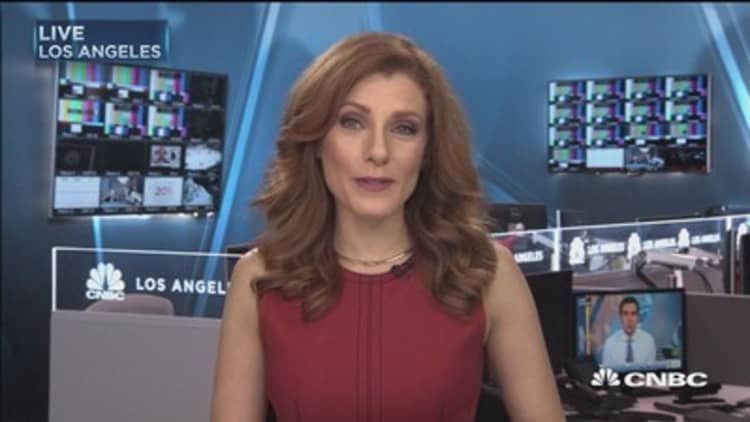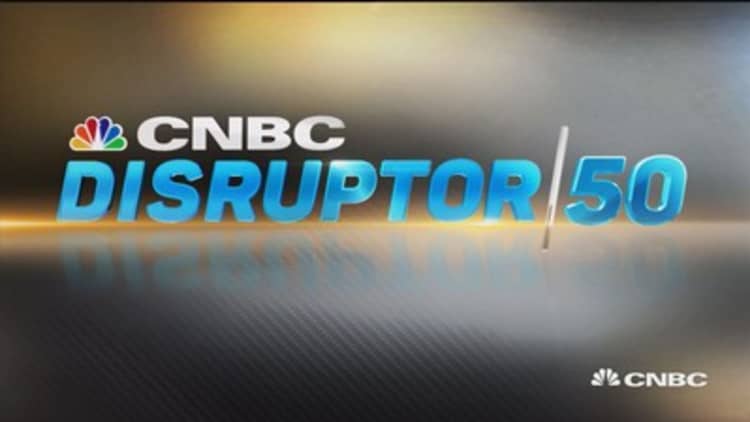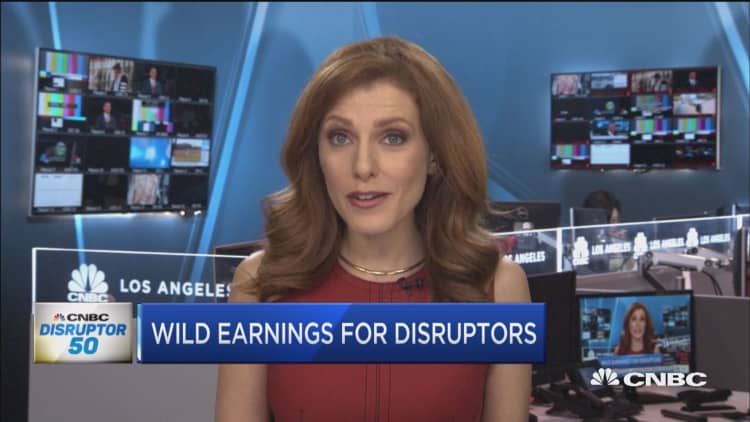"We're in the best of all IPO markets. If you're not moving forward, you need to have your head examined."
That's the assessment of Renaissance Capital's Kathleen Smith, who keeps close track of the IPO pipeline and says several 2016 CNBC Disruptor 50 companies could go public by the end of the year.
And the companies on CNBC's Disruptor 50 list are bigger and more mature than ever. Seven have been named to the list for four straight years: Airbnb, Dropbox, Palantir, Pinterest, SpaceX, Spotify and Uber. Combined they're worth more than $120 billion; Uber has the highest valuation, at $68 billion, according to PitchBook.

It's already been a record year for Disruptor 50 IPOs. Four of the 2016 class have gone public since the list came out last year, the most since CNBC started the list in 2013. Three — Snap, Okta and Cloudera — have happened since March 1. The Snap IPO was the biggest tech deal since Facebook. Many say the other — Twilio — opened the window for a new wave of venture-backed companies to IPO. But only Cloudera remains substantially higher than its opening-day price.
More from the CNBC Disruptor 50:
SoFi's big stock sale
Print your own car, really!
Police don't have James Bond cool, but they're getting his gadgets
The overall surge of IPOs is expected to continue, putting 2017 on track for the first annual increase in IPOs in four years. In the first quarter of the year, there were 24 U.S. IPOs, triple the number in the year-ago quarter. And there's already a robust pipeline; 33 new registrants in the quarter, up from 26 in the year-earlier quarter. These IPOs aren't just drawn to the record market; some of them are also being pushed by VCs pulling back and the risk of "down rounds" —investors lowering private-company valuations.
Who's next?

Kathleen Smith thinks Dropbox and Spotify have the best chance of going public by the end of the year. Dropbox has reportedly lined up banks for a possible IPO, and CEO Drew Houston told Bloomberg in April that the company has hit certain revenue and profit milestones that further clear the way for it to go public. Spotify has said it's been exploring an unconventional plan to go public, and CNBC reported Friday morning that it is pursuing a direct listing on the NYSE for 2018, forgoing a traditional IPO.
Airbnb, which is reportedly profitable, is expected to go public in 2018. And Lyft may file before its larger rival, Uber, which is facing PR headaches plus a Department of Justice investigation. Lyft also has a partnership with, and investment from, GM to help drive its next leg of growth.
One problem for Disruptor IPOs: Performance
The Renaissance IPO ETF (IPO) that tracks recent IPOs is up 18 percent year-to-date, driven in large part by Shopify, a company from the inaugural 2013 Disruptor 50 list whose stock is up more than 115 percent year-to-date and almost 250 percent over the past 12 months. But Shopify is quite an outlier; the track record of Disruptor 50 IPOs is mixed.
While Snap and Twilio both had big, celebrated IPOs, their stocks have been struggling. Snap soared out of the gate before sinking on concerns about competition from Facebook and then plummeting on a disappointing first earnings report. While Twilio also rallied, nearly doubling on its first day of trading last June, the stock started to drop last fall on concerns about slowing growth. Then it plummeted after its most recent earnings report on news that it's losing a chunk of its business from Uber.

Snap and Twilio's dramatic drop in earnings speak to the pressure that Disruptors are under to keep innovating, and to avoid being squashed by the companies they originally aimed to challenge. Snap is a perfect example: Its service threatened to disrupt ad giants such as Facebook, stealing their user base and ad dollars. Now investors are worried about the impact of Facebook copying its most popular features. And Etsy's suffering from a failure to keep innovating this quarter, resulting in the ousting of its CEO.
Two surprise success stories this quarter came from the founder and CEO of two Disruptor 50 companies — Jack Dorsey. Despite concerns that Twitter was stagnating beside its innovative social media rivals, Twitter beat expectations on both revenue and earnings and re-accelerated user growth. And Square showed its scope as a disruptor: successfully diversifying its revenue streams, with broader geographic reach, and the growth of its banking and loan service.
Okta and Cloudera, which went public with far less fanfare last year, have done the best of recent IPOs — Cloudera is 10 percent above its opening-day price, and Okta is flat. But neither has released their first quarterly earnings yet.






